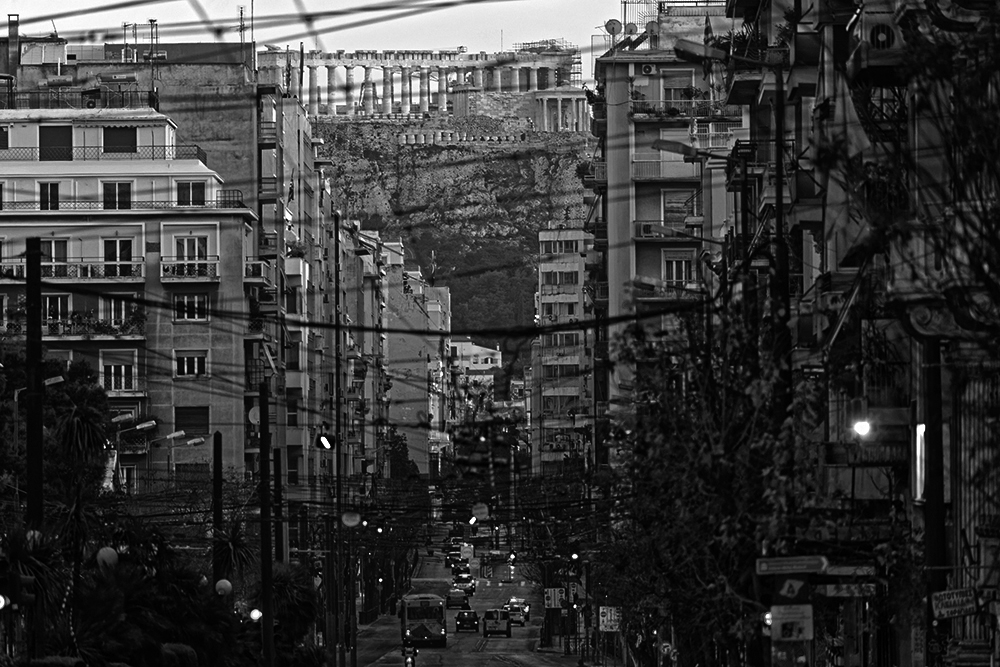Few ancient cities flaunt, obsess over but also degrade their antiquity like Athens. An Italian traveller sighting it in the seventeenth century, hailed the ancient city clustering around ‘the most beautiful piece of antiquity remaining in the world’, the Acropolis. But by the early 1800s, armies, Western aesthetes and looters fighting over its legend had already reduced its appearance so much that English Poet Lord Byron described it as ‘the most injured, most celebrated of cities’.
Today, tonnes of concrete cover most of the city Byron witnessed, leaving contemporary arrivals four ways in which to approach it. Drivers must plough through several kilometres of seaside industrial facilities or haphazardly-constructed inland residential districts before encountering anything reminiscent of an Instagram feed. Ferry passengers steam into a smoggy harbour replete with vintage dock machinery, crowded with apartment blocks, and dominated by the hulk of a skyscraper built, then abandoned, during the 1967–74 Colonels’ dictatorship. Trains deliver their passengers straight to a downtown of dense, poor and multicultural neighbourhoods a world apart from the neoclassical villas scattered around the Acropolis’ Arcadian foothills. Finally, air-travellers descend over the glittering waters and wind-turbine-studded islets of the ‘Athens Riviera’ (perhaps the only Riviera to have already been overbuilt and environmentally-degraded before being proclaimed as one) gliding over automobile and villa-sprawl into an airport constructed for the 2004 Olympics. An underground metro and a privately-operated highway winding through a forested mountain further shield new arrivals from the concrete organism splayed across the Attic Plain.

The rest of this article is only available to subscribers.
Access our entire archive of 350+ articles from the world's leading writers on Islam.
Only £3.30/month, cancel anytime.
Already subscribed? Log in here.
Not convinced? Read this: why should I subscribe to Critical Muslim?